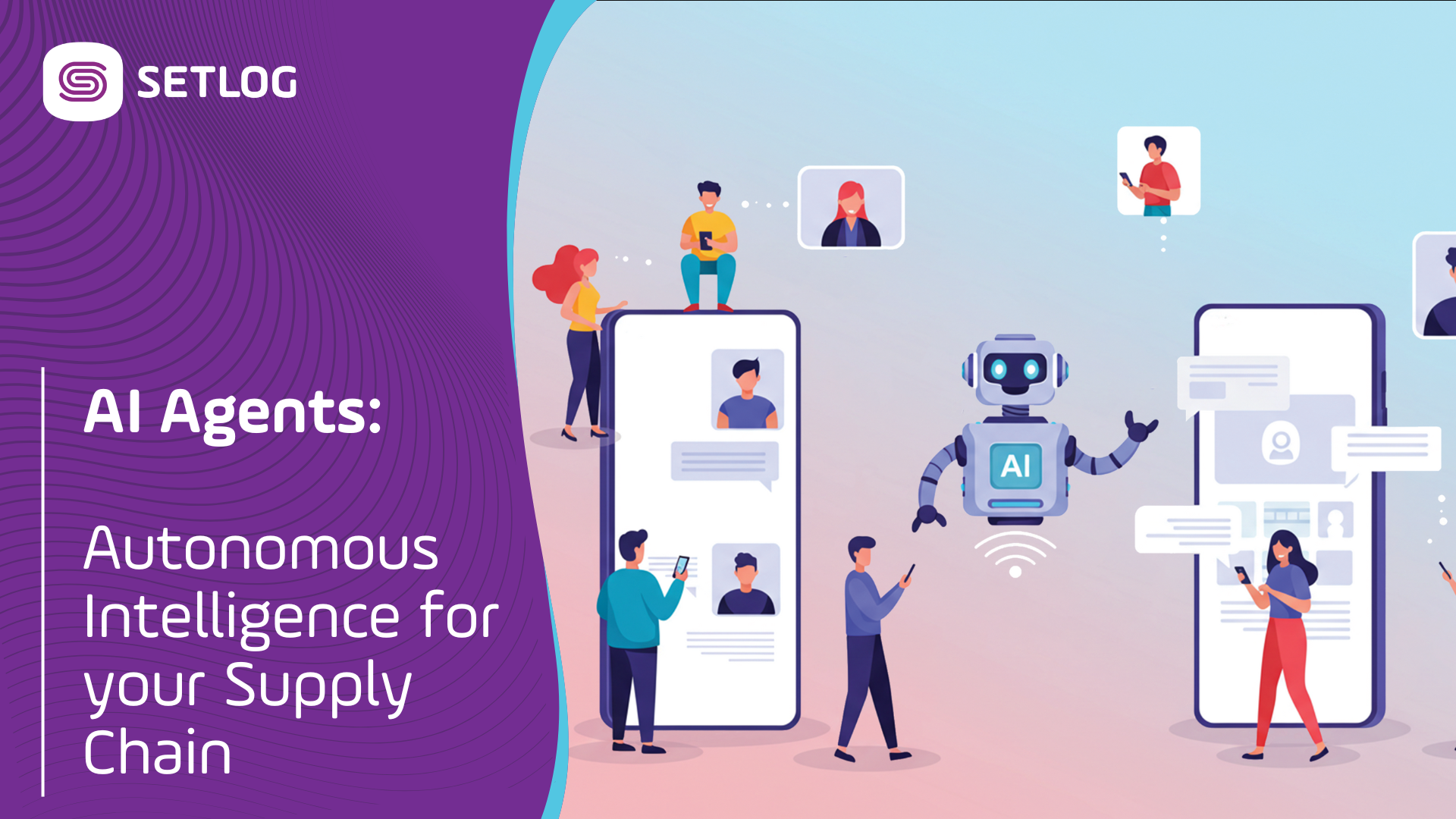Global Supply chains generate massive amounts of data every day. Yet data alone does not create action. Dashboards may provide visibility, but they don’t solve the fundamental problem: how do you turn knowledge into decisions that matter?
AI agents address exactly this gap. These autonomous systems go beyond reporting – they interpret information, act on it, and ensure that supply chains move from observation to control.
What Are AI Agents?
AI agents are software programs designed to achieve goals. They observe their environment, gather data, and decide on the best next steps. Humans define the objectives, AI agents determine how to reach them. Unlike rule-based tools, AI agents act rationally. They weigh probabilities, analyze outcomes, and choose the option most likely to succeed. In short: they don’t just process data, they use it to act.
Side note: Chatbots vs. AI Agents
Chatbots are reactive. They follow scripts, answer FAQs, and stop where the rulebook ends. AI agents are proactive. They understand context, connect to multiple data sources, and independently decide what action to take. The difference is decisive: chatbots respond – AI agents deliver results.
Application in the Supply Chain: AI Agents as Connectors
Supply chains consist of a multitude of systems, partners, and data sources. From ERP and TMS systems to customs and tracking interfaces, as well as external information such as weather or traffic data. Often these components operate in isolation, leading to delays, information gaps, and inefficient control.
This is where AI agents unfold their full potential: they act as connectors between individual systems and create a continuous flow of data across the entire supply chain. Instead of merely collecting information, they evaluate it in real time, detect deviations, and actively initiate measures. For managers, this means less time spent on searching for and aligning data and more time for strategic decision-making.
One typical example is international transport: if an agent detects a potential delay in port arrival, it evaluates alternatives and informs adjacent processes such as production or distribution. The final decision remains with humans. Working together as a team, the agent provides speed and data clarity, while the manager contributes experience and responsibility. In this way, transparency is transformed into true actionability, with the goal of avoiding downtime and securing delivery reliability.
Business Value
The operational benefits are obvious: AI agents enable faster responses, reduce delays, and increase supply chain reliability. Processes are not only monitored but actively controlled in real time. As a result, bottlenecks can be mitigated and costs from downtime or excess capacity avoided.
Beyond operations, AI agents also provide strategic value. Whether in production planning, supplier management, or compliance with regulatory requirements, they offer data-driven decision support and help companies identify risks early while operating more sustainably. In doing so, they transform the supply chain from a reactive into a proactive control model.
Conclusion: From Reacting to Acting
In an increasingly complex and uncertain world, it is no longer sufficient to simply react to disruptions. Companies need systems that act proactively, connect processes, and prepare decisions automatically. AI agents assume this role by translating data into concrete actions.
This makes them a central success factor for modern supply chains: they increase speed, transparency, and resilience, giving companies the decision-making power they need to compete in dynamic markets.
